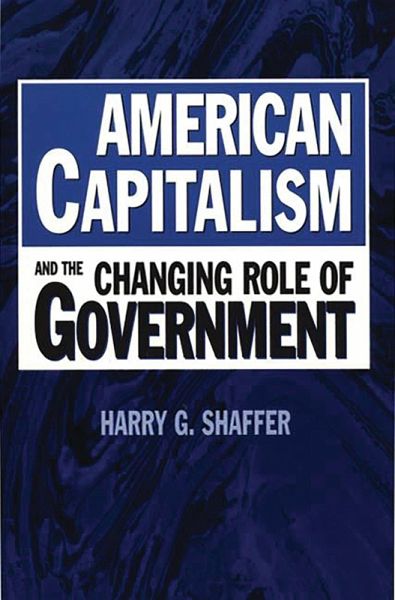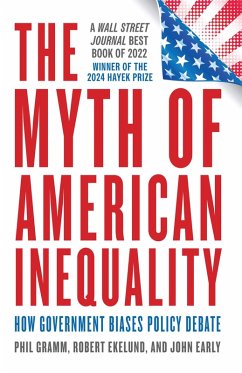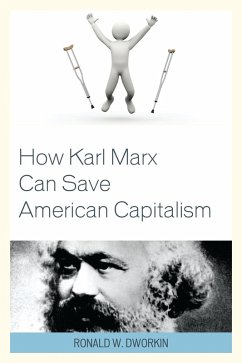
American Capitalism and the Changing Role of Government (eBook, PDF)
Versandkostenfrei!
Sofort per Download lieferbar
21,95 €
inkl. MwSt.
Weitere Ausgaben:

PAYBACK Punkte
11 °P sammeln!
The conventional wisdom has it that a balanced budget is the height of economic rationality, that social security should be privatized, and that most adult welfare recipients could and should get jobs. All our social and economic problems, we are told, are due to too much government; if we only left the American free enterprise system alone, the free market would heal all that ails our society and lead to lasting prosperity. Challenging these widespread stereotypes and myths, this book starts with the fundamental theory underlying capitalist ideology, showing that even in theory an unfettered ...
The conventional wisdom has it that a balanced budget is the height of economic rationality, that social security should be privatized, and that most adult welfare recipients could and should get jobs. All our social and economic problems, we are told, are due to too much government; if we only left the American free enterprise system alone, the free market would heal all that ails our society and lead to lasting prosperity. Challenging these widespread stereotypes and myths, this book starts with the fundamental theory underlying capitalist ideology, showing that even in theory an unfettered free market cannot deal effectively with the many needs of a modern economy. Our society has many social goals to which the great majority subscribe-goals such as sustained full employment, universal health care, and quality education for all. The free market will not, the author argues, bring us quality education for every American child, affordable universal health care, Social Security for the elderly, assistance for the poor, or protection of the environment. Only an active, participant government can affect positive change in such areas of social concern.













